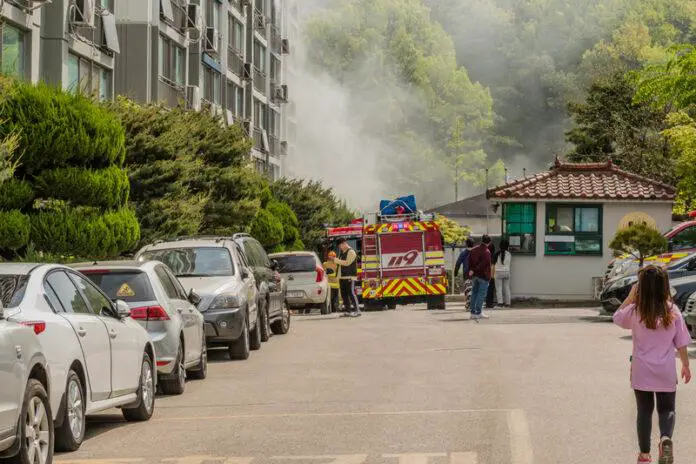On June 24, 2024, a devastating fire broke out at a lithium battery factory in Hwaseong, South Korea, leading to the unfortunate deaths of 22 workers. The fire began following a series of explosions in a warehouse holding 35,000 battery cells, rapidly escalating and causing extensive damage and loss of life.
The fire ignited at approximately 10:31 a.m. and was mostly put out within six hours. The factory, owned by primary battery manufacturer Aricell, is located in Hwaseong, a major industrial center about 90 minutes southwest of Seoul. The casualties included 18 Chinese nationals, two South Koreans, and one Laotian. Two people sustained severe burns and are currently receiving medical treatment.
The precise cause of the explosions is yet to be determined. However, experts believe that highly combustible battery materials likely accelerated the spread of the fire. “Battery materials like nickel are easily flammable, so the fire probably spread too quickly for workers to escape,” stated Kim Jae-ho, a Fire and Disaster Prevention professor at Daejeon University. The victims may have succumbed quickly to toxic gases released during the explosion, officials speculated.
South Korean President Yoon Suk Yeol visited the site to supervise the response efforts and express his condolences to the bereaved families. Interior Minister Lee Sang-min underscored the necessity of preventing hazardous chemicals from polluting the surrounding area, underlining the government’s focus on environmental and public safety.
This incident underscores the ongoing safety challenges in South Korea’s industrial sector despite recent legislative efforts to improve conditions. South Korea has a track record of fatal industrial accidents, typically linked to negligence and inadequate safety protocols. Two years prior, the government enacted laws to hold corporate executives accountable in the event of fatal accidents, aiming to increase corporate responsibility and worker safety.
The factory, established in 2020, specializes in producing lithium primary batteries for sensors and radio communication devices. S-Connect, the majority owner of Aricell, experienced a 22.5% drop in shares following the incident. This calamity has prompted concerns about safety standards in the burgeoning battery manufacturing industry, a crucial component of the global supply chain for electric vehicles and renewable energy storage.
In the wake of this incident, the South Korean government is considering strengthening safety requirements for energy storage systems (ESS). Proposed measures include the installation of ground-fault detectors, fire suppression systems, and devices to regulate internal pressure in battery cells during thermal runaways. These actions are designed to prevent similar occurrences and improve the overall safety of battery production and storage facilities.


